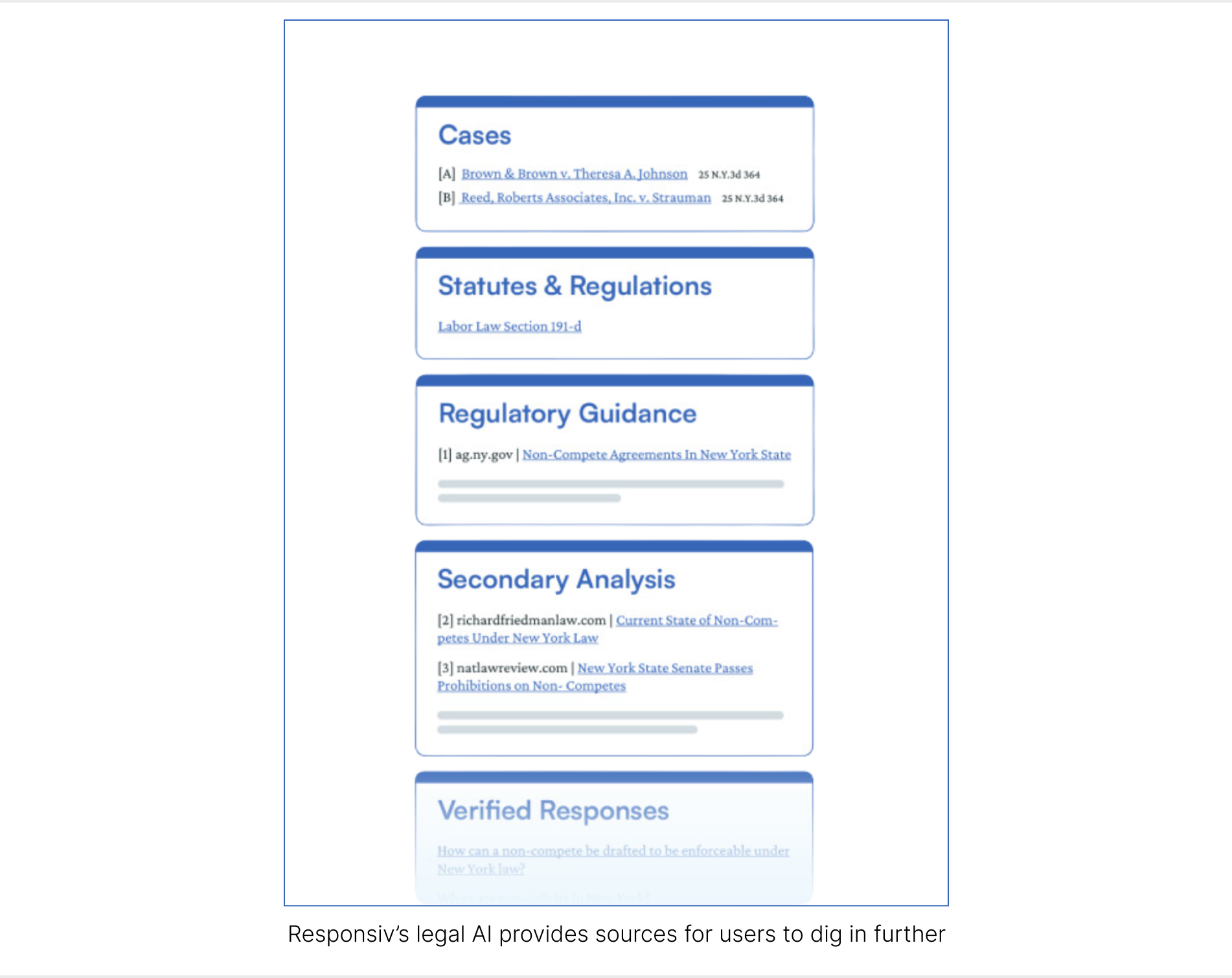How Solo.io’s Responsiv investment paid
for itself in a month

“We are 100% saving on outside counsel. There’s no doubt in my mind.”
Laurel Palluzi, Director of Legal


“We are 100% saving on outside counsel. There’s no doubt in my mind.”
Laurel Palluzi, Director of Legal

A team of 1 to cover every legal practice area and jurisdiction
Solo.io connects the world’s applications with APIs and service mesh across any infrastructure. Legal at Solo.io is a team of 1, Laurel, whose legal work spans commercial, corporate, employment, product, privacy, and more recently, AI-related projects. She told us that her scope covers “everything and anything that randomly occurs in the business.”
With customers and employees around the world, she navigates the complexity of many domestic and international jurisdictions that each have an ever-changing regulatory landscape.
Responsiv is a legal research and drafting platform for legal and compliance teams to quickly find legal information themselves. Responsiv’s customers save their outside counsel budget for when they actually need it. Laurel uses Responsiv’s legal research AI to answer questions across her portfolio of work, using both the Responsiv-generated answer and the primary and secondary legal sources Responsiv pulls from when she wants to dig in further.
With Responsiv’s source-backed memo, Laurel can make decisions quickly.

It takes a long time to get answers from a network of peers
Before Responsiv, Laurel often started with her great network of Women GCs and Technology GCs. Sometimes, waiting for her network to respond “can take two days or three days given how busy everyone else is.” She also must consider industry and risk-tolerance differences. Depending on the responses, Laurel would either go to outside counsel or do further research internally, often using Google.
From a budgetary perspective, going to outside counsel with every question just wasn’t an option. She told us that when she went to outside counsel, she would have to make sure it was a very narrow and targeted question to limit the potential legal spend.
Laurel told us of traditional legal research tools, “I hate them all. When dealing with a situation that’s on fire, you don’t have three weeks to read through cases.”
What onboarding process? I just logged in and got going
Laurel tells us that her Responsiv usage covers many practice areas and is both for broad, high-level understanding of an issue and specific deep dives into a topic.
She used Responsiv recently to get an overview of the EU AI Act, which was passed in March 2024. Responsiv enabled Laurel to swiftly grasp the key tenets of the Act, facilitating targeted inquiries relevant to her company and direct exploration of crucial sources. Customers like Laurel often use Responsiv’s interactivity to start broad, refine their question, and dig further into a specific topic.
Responsiv’s capabilities are well-suited for answering new sophisticated questions and for providing quick refreshers on known topics. Laurel is well-versed in GDPR, but “sometimes it’s easier to ask Responsiv to list the different categories of legal basis allowed for processing personal information than trying to recall them all from memory.”
“I can respond so much faster with Responsiv”
If there’s an urgent issue, Laurel says she used to have to go to outside counsel because you must give your busy network of peers a couple of days to respond, especially when you want multiple opinions. With Responsiv, she told us that “I’m able to get to a preliminary analysis in 15 minutes.”
Laurel recently had a project that required a state-by-state analysis in 12 different states. She used Responsiv and “in one month, we already paid for Responsiv’s annual license fee” with saved outside counsel fees. “We are 100% saving on outside counsel. There’s no doubt in my mind.”
“Sometimes, it’s a new topic and I don’t know how to frame the task. Responsiv suggests questions that are really helpful to start with – Google does not do that.”
Laurel notes that every head of legal is a generalist. She often uses Responsiv to learn about new areas of law. She loves its ability to synthesize information and that the primary and secondary sources are there to dive into. Laurel also noted Responsiv’s suggested questions help direct her research.

AI is going to modernize legal
Laurel told us she’s excited that AI for legal will mean greater efficiency in the legal community. “We don’t need to spend $10,000 to write these long memos that really aren’t that useful most of the time.” She also thinks that it will enable lawyers to learn faster.
We all are looking forward to seeing how legal tech will change with the rush of AI innovation.
